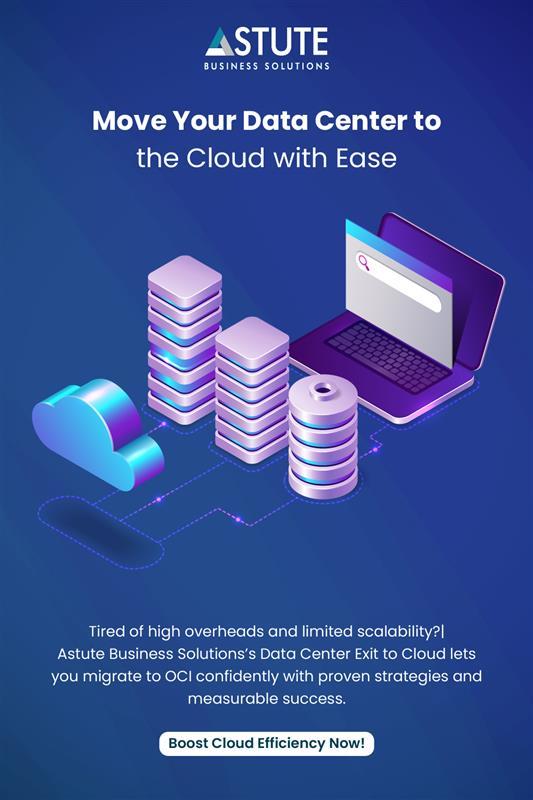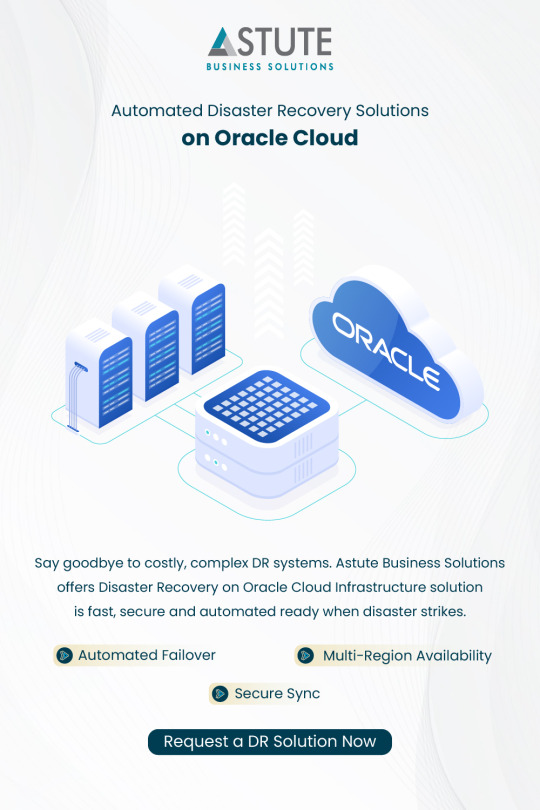#Cloud Infrastructure
Explore tagged Tumblr posts
Text
Global Data Center Spending Surges to $250B by 2026
Capital is flowing into sustainable cooling, intelligent energy systems, and high-density GPU racks. Discover how infrastructure priorities are shifting.
Read more here – https://dcpulse.com/article/powering-the-cloud-top-data-center-cities-2025-trends
#Data center trends 2025#top data center cities#cloud infrastructure#hyperscale data centers#edge computing#artificial intelligence infrastructure#global data center market#cloud growth 2025#data center investment#sovereign cloud strategy#Ashburn data center alley#Singapore digital hub#green data centers#energy-efficient cloud#fastest growing cloud markets#global latency optimization#data center site selection#data center cooling technology#AI-powered cloud infrastructure#data sovereignty laws#India data center boom#Brazil cloud infrastructure#Malaysia hyperscale growth#Vietnam data center market#Southeast Asia cloud expansion#Latin America data center growth#liquid cooling for data centers#renewable energy in data centers#regulatory compliance cloud#data localization laws
1 note
·
View note
Text
CEOs a few years ago all over the planet:
"Let's move all critical infrastructure software to the cloud. What could possibly go wrong?"
Same time in the Microsoft / Google/ Amazon HQ meetings (executive board plus legal department plus chief cloud administrator):
Admin (very agitated): "There's no effing way we'll be able to guarantee uptime and redundancy 24/7!"
Lawyer (very agitated): "The lawsuits will cost billions and the possible casualty in human life cannot even be measured in good consciousness."
CEO (dead ass calm, demonic soothing voice): "Chill. The contracts will be waterproof in our favor and the tax payers will cover...Once it all hovers in our clouds, there's no going back!"
*most evil cackling imaginable*

46K notes
·
View notes
Text

Launch Career in Cloud Computing - AWS Training & Certification Program
Ready to launch your career in cloud computing? Join Evision Technoserve’s AWS Training & Certification Program and master key AWS services like IAM, S3, EC2, and VPC through real-time hands-on labs. Our program offers industry-recognized certification, practical experience with the AWS Console, and 100% placement support to help you get hired globally. Whether you're starting out or upskilling, this is your pathway to a successful cloud career.
#Cloud Infrastructure#AWS Certified SysOps Administrator#AWS Certified Developer#Amazon Web Services (AWS)#Cloud Computing
0 notes
Text

Astute Business Solutions’s data center exit to Cloud services helps you migrate traditional and cloud-native workloads to OCI with speed and confidence. Optimize performance, cut costs and meet global compliance standards. Start your OCI journey today!
#cloud infrastructure#oracle cloud services#data center migration#enterprise IT transformation#cost optimization
0 notes
Text
Why Are Businesses Choosing Remote Infrastructure Management?
The remote infrastructure management market continues to grow rapidly. In 2024 it is estimated to be valued at over 42 billion US dollars and is expected to surpass 90 billion US dollars by 2030. This growth is driven by the rising demand for secure scalable IT services that support hybrid and remote work models.
how RIM can: > Proactively detect and resolve issues > Minimize downtime and operational disruptions > Strengthen security and compliance posture > Improve system reliability and performance > Support business continuity and scalability
Talk to an expert@ https://teleglobals.com/cloud-infrastructure-assessment
What are RIMs in Information Technology
RIMs in IT stands for Remote Infrastructure Management services. These services are designed to handle IT infrastructure from monitoring and maintenance and system updates. They are commonly used by organizations seeking reliable cost-effective IT operations without building an internal team.
Benefits of Remote Infrastructure Management
Reduces downtime and improves service availability
Strengthens cybersecurity through continuous monitoring and patching
Helps manage infrastructure costs and avoid overspending
Supports growth with scalable and flexible infrastructure options
Simplifies compliance and improves audit preparedness
Enhances user support through reliable remote desktop software
Read the full article here@ https://teleglobals.com/blog/how-remote-infrastructure-management-helps-reduce-business-risks
Businesses that attempt to manage infrastructure without external support often face preventable challenges including downtime security breaches and rising costs. Remote Infrastructure Management provides an effective solution by offering expert-level oversight proactive system management and continuous improvement.
#IT Operations#Remote Infrastructure#Cloud Management#IT Risk Management#Infra Security#IT Professionals#Business Continuity#IT Support#Cloud Infrastructure#Teleglobal International
0 notes
Text
Unlocking Agility and Efficiency with Managed Cloud Services
As technology accelerates, the cloud has become an indispensable tool for businesses of all sizes. From startups to large enterprises, organizations are increasingly relying on cloud infrastructure to power applications, store data, and scale globally. However, as cloud environments grow more complex, managing them efficiently becomes a challenge that demands both time and expertise.
This is where managed cloud services offer a strategic advantage. By outsourcing cloud infrastructure and operations to experienced professionals, businesses can enhance agility, strengthen security, and reduce operational burdens—all while staying focused on innovation.
Understanding Managed Cloud Services
Managed cloud services refer to the proactive management of a company’s cloud resources by a third-party provider. These services typically include cloud architecture design, infrastructure setup, ongoing performance monitoring, automated scaling, disaster recovery, security enforcement, and 24/7 technical support.
Rather than hiring and training an in-house team to manage cloud operations, companies can rely on a service provider that specializes in optimizing, securing, and maintaining cloud environments across platforms like AWS, Microsoft Azure, or Google Cloud.
Why Managed Cloud Services Matter
For most organizations, especially those undergoing digital transformation, cloud services play a central role. However, managing them in-house often presents hidden costs and operational risks. Here’s why outsourcing to a managed cloud service provider makes sense:
1. Expertise That Scales with You
Cloud platforms evolve rapidly. Every quarter brings new tools, pricing models, and performance enhancements. Staying on top of these changes internally can be overwhelming. Managed service providers bring dedicated teams that live and breathe cloud technologies. They ensure your infrastructure is optimized for both current needs and future growth, without the need to constantly hire or upskill internal staff.
2. Cost Control and Operational Efficiency
Without proper oversight, cloud costs can quickly spiral out of control. Businesses often pay for unused resources or misconfigured environments. Managed providers implement cost-optimization strategies such as right-sizing, reserved instances, and automated scaling to ensure every dollar is well spent. They also streamline operations by automating routine tasks, reducing manual intervention and human error.
3. Enhanced Security and Compliance
Security remains a top concern for cloud users. Whether you’re in healthcare, finance, or retail, compliance with data protection regulations is non-negotiable. Managed cloud providers implement robust security measures like identity and access control, data encryption, real-time threat monitoring, and regular audits. These proactive practices help maintain data integrity and ensure compliance with regulations like GDPR, HIPAA, and PCI-DSS.
4. Improved Uptime and Reliability
Downtime can damage brand reputation, disrupt customer experience, and lead to revenue loss. Managed services offer constant monitoring, failover strategies, and proactive alerting to prevent outages before they happen. With round-the-clock support and automated recovery processes, your applications remain available and resilient, even during unexpected incidents.
5. Faster Time to Market
Managed cloud providers reduce deployment times by leveraging automation, infrastructure-as-code (IaC), and DevOps best practices. Whether you're launching a new product or scaling existing services, you’ll be able to move faster with a reliable partner handling the technical complexity behind the scenes.
Industries Benefiting from Managed Cloud Services
Managed cloud services are not limited to a particular sector. Businesses across industries are experiencing measurable value from these services:
E-commerce companies use managed services to scale during traffic spikes, secure payment systems, and deliver personalized shopping experiences through real-time analytics.
Healthcare organizations depend on managed cloud support for storing and sharing sensitive patient data securely while maintaining strict compliance requirements.
Fintech firms rely on managed services to build highly available and secure platforms for online transactions, fraud detection, and customer data protection.
Media and entertainment platforms leverage managed infrastructure to stream content seamlessly and manage fluctuating demand with minimal latency.
Choosing the Right Cloud Service Provider
Selecting the right managed service provider is a critical decision. It’s important to evaluate providers based on their technical expertise, platform certifications, response times, and approach to customer support. Additionally, look for a partner that offers flexibility—able to scale with your business and customize solutions to meet your unique needs.
One of the key benefits of working with a trusted provider offering managed cloud services is having a single point of accountability. From infrastructure setup to post-deployment monitoring, they handle everything, allowing your internal teams to stay focused on strategic initiatives and core competencies.
Future-Proofing Your Business
Cloud adoption is no longer just about moving data from one place to another. It’s about transforming how your business operates. From enhancing customer experiences to enabling global scale, the cloud is the engine behind modern digital enterprises.
Managed cloud services ensure that this engine runs smoothly, securely, and cost-effectively. They give you the confidence to innovate quickly, expand globally, and respond to market changes without worrying about infrastructure limitations.
As your business grows, your cloud requirements will evolve. A capable managed services partner will evolve with you—introducing new technologies, improving processes, and continuously optimizing performance to meet changing business goals.
Conclusion
The demand for flexible, secure, and scalable cloud infrastructure has never been greater. But managing this complexity requires more than just tools—it requires experience, focus, and strategic insight. Managed cloud services offer businesses of all sizes the ability to take full advantage of the cloud without the operational burden.
By aligning with a reliable cloud partner, you gain access to expertise, round-the-clock support, and a roadmap for future growth. Whether you’re starting your cloud journey or seeking to refine existing systems, managed services provide a smart, scalable path forward.
0 notes
Text
From #CloudArchitects to #Engineers to #Developers to #Analysts . All a part of the core of what makes #InformationTechnology the best field. #Microsoft with #automation through #AI #ArtificialIntelligence and #MachineLearning gives depth and breadth to #ITJobs . Microsoft empowers #MicrosoftPartners to deliver the best in quality products and services for #Business #Education #Government #NonProfit and #Healthcare . Learn more here: https://techsolworld.com/subscriptions or Call (800)998-2792.
#cloud architect#cloud infrastructure#machine learning#deep learning#information technology#microsoft partner#microsoft security partner#microsoftappsource#microsoftenterprise#information technology developers#non-profit#healthcare#government#finances#education#microsoft education#microsoft gcc#nonprofit software#nonprofit microsoft
0 notes
Text
Dunedin City Council Partners with HCLTech for 10-Year Digital Transformation
HCLTech has entered a landmark 10-year strategic partnership with the Dunedin City Council (DCC) to lead a comprehensive digital transformation of its IT services. The collaboration aims to modernize and manage DCC’s digital infrastructure, enhance service delivery, and boost community engagement through cutting-edge technology. As part of the deal, HCLTech will revamp the Council’s IT services…

View On WordPress
#ai and cloud modernization#ai automation tools#ai in government#apac tech trends#automation in governance#cloud infrastructure#cybersecurity solutions#digital transformation 2025#dunedin city council#dunedin digital transformation#government digital strategy#govtech partnership#hcl bse#hcl cloud services#hcl DII holding#hcl dividend#hcl engineering services#hcl FII holding#hcl fundamental analysis#hcl investments#hcl it services#hcl long term investment#hcl market cap#hcl net profit#hcl nse#hcl outsourcing#hcl PE ratio#hcl revenue#hcl share forecast#hcl share price
0 notes
Text

Unlock innovation and agility with Azure Cloud Computing. Impressico Business Solutions empowers enterprises to scale effortlessly, improve data security, and optimize performance through tailored cloud strategies. Embrace digital transformation with Microsoft Azure's cutting-edge infrastructure backed by their expert guidance and 24/7 support. Make your business future-ready today.
#Azure Cloud Computing#Cloud Computing Platform#Azure Cloud Infrastructure#Azure DevOps Packer#Azure Cloud#Cloud Computing#Cloud Infrastructure
0 notes
Text
Hyperscale Data Centers: The Future of Digital Infrastructure
This in-depth article unpacks the rising innovations, sustainability practices, and growth projections of hyperscale data centers.
Read more by clicking on link
#Hyperscale Data Centers#Data Center Trends 2025#Emerging Technologies#Cloud Infrastructure#Green Data Centers#Data Center Innovation#AI in Data Centers#Future of Data Centers#Edge Computing#Sustainable IT#Digital Infrastructure#Hyperscale Growth#Data Center Cooling#Modular Data Centers#Energy Efficiency
1 note
·
View note
Text
24/7 compliance monitoring: The AI advantage in data protection
New Post has been published on https://thedigitalinsider.com/24-7-compliance-monitoring-the-ai-advantage-in-data-protection/
24/7 compliance monitoring: The AI advantage in data protection


Data protection compliance has evolved from a periodic checklist exercise to a continuous responsibility. With cyber threats emerging and regulatory requirements becoming increasingly stringent, organisations can’t afford to rely on manual compliance monitoring approaches. The advent of artificial intelligence has transformed the challenge, offering capabilities for continuous oversight and real-time protection of sensitive data.
The evolution of compliance monitoring
Traditional compliance monitoring is characterised by annual assessments and reactive responses to incidents. While this approach is sufficient for simpler regulatory environments, it falls short in addressing the complexities of modern data protection. The General Data Protection Regulation (GDPR), the Data Protection Act 2018, and emerging frameworks like the Digital Services Act demand compliance and demonstrable, ongoing adherence to data handling protocols.
The shift to continuous monitoring represents a change in how organisations approach compliance. Rather than periodic snapshots of compliance status, businesses are better off with real-time visibility in their security posture. The transformation has been driven by several factors: the increasing volume and velocity of data processing, the sophistication of cyber threats, and the evolution of regulatory expectations towards proactive rather than reactive compliance.
AI-powered continuous monitoring capabilities
Artificial intelligence brings several advantages to compliance monitoring that human-led processes cannot match. Machine learning algorithms can process vast quantities of data in real-time, identifying patterns and anomalies that would be difficult for human analysts to detect manually. Systems can simultaneously monitor multiple data streams, user activities, and system behaviours in all of an organisation’s digital infrastructure.
AI-powered monitoring systems excel at pattern recognition, learning from historical data to establish baselines of normal behaviour. When deviations occur – whether through unauthorised access attempts, unusual data transfers, or policy violations – they can immediately flag potential compliance breaches. The capability extends beyond simple rule-based detection; AI systems can identify subtle indicators that may suggest emerging compliance risks before they transform into actual violations.
AI systems can contextualise compliance events in broader organisational and regulatory frameworks. Rather than generating isolated alerts, intelligent monitoring platforms can assess the significance of events based on factors like data sensitivity, user roles, regulatory requirements, and potential business impact. Contextual awareness enables more targeted and effective compliance responses.
Real-time threat detection and response
The speed of AI-powered monitoring represents perhaps its most significant advantage over traditional approaches. While manual compliance reviews might detect violations up to days or weeks after they occur, AI systems can identify and respond to potential breaches in seconds or minutes. This rapid response capability is important to minimise the impact of data protection incidents and ensure swift remediation.
Real-time monitoring lets organisations implement dynamic compliance controls that adapt to changing circumstances. For instance, if AI systems detect unusual data access patterns that suggest potential unauthorised activity, they can trigger additional authentication requirements or temporarily restrict access to sensitive resources. A proactive approach can prevent compliance violations before they occur, rather than documenting them after the fact.
The integration of AI with automated response mechanisms further enhances protection capabilities. When potential violations are detected, systems can automatically initiate predefined response protocols, like isolating affected systems, notifying relevant personnel, or implementing emergency access controls. Automation helps ensure consistent and timely responses, regardless of when incidents occur or whether human operators are immediately available.
Comprehensive coverage across digital assets
Modern organisations operate complex digital ecosystems that span cloud services, on-premises infrastructure, mobile devices, and third-party applications. AI-powered compliance monitoring can provide unified oversight in diverse environments, helping ensure consistent protection standards regardless of where data resides or how it is processed.
Cloud environments, in particular, benefit from AI-driven monitoring. The dynamic nature of cloud infrastructure – with resources being created, modified, and destroyed continuously – makes manual compliance oversight difficult. AI systems can track configuration changes, monitor data flows, and ensure that security controls remain properly configured as environments evolve. This capability is important in maintaining compliance in cloud-centric business operations.
Additionally, AI can monitor compliance in the full data lifecycle, from collection and processing to storage and deletion. By implementing a compliance automation platform like Thoropass, organisations can help ensure that data handling practices are consistent with regulatory requirements throughout each stage of processing. Comprehensive coverage helps organisations maintain demonstrable compliance even as data volumes and processing complexity continue to grow.
Predictive analytics for compliance risk management
Beyond reactive monitoring, AI can provide predictive analytics that can identify potential compliance risks before they materialise. Analysing historical patterns, user behaviours, and system configurations lets AI systems predict scenarios that may lead to compliance violations. Predictive capability allows organisations to implement preventive measures and address vulnerabilities proactively.
Predictive analytics can also inform compliance strategy and resource allocation, and identifying areas of highest risk and predicting future compliance challenges helps organisations prioritise their security investments and compliance efforts. The strategic application of AI ensures that limited resources are directed towards the most dangerous areas of risk.
Regulatory reporting and documentation benefits
AI-powered monitoring systems perform well at generating comprehensive audit trails and compliance documentation. Systems can automatically collect, correlate, and present evidence of compliance activities in formats suitable for regulatory reporting. Such capability reduces the administrative burden associated with compliance documentation and helps ensure accuracy and completeness.
Automated reporting capabilities also enable more frequent and detailed compliance assessments. Rather than waiting for annual audits, organisations can generate real-time compliance reports that provide continuous visibility into their data protection posture. An ongoing assessment capability helps organisations identify and address compliance gaps more quickly, reducing the risk of regulatory violations.
The transition to AI-powered compliance monitoring represents a technological upgrade and signifies a shift towards more effective, efficient, and comprehensive data protection. As regulatory requirements evolve and cyber threats become more sophisticated, the ability to maintain continuous oversight of data protection compliance becomes not just advantageous, but essential. Organisations that adopt AI-driven capabilities position themselves to meet current compliance requirements and adapt successfully to tomorrow’s regulatory landscape.
Guest author: Sally Giles
Image source: Pexels
#ai#AI systems#AI-powered#alerts#Algorithms#Analytics#anomalies#applications#approach#artificial#Artificial Intelligence#assessment#audit#authentication#author#automation#automation platform#awareness#Business#challenge#change#Cloud#cloud infrastructure#cloud services#complexity#compliance#compliance automation#comprehensive#continuous#continuous monitoring
0 notes
Text
Smart Infrastructure for Cloud Communications with Next-Gen Data-Center Frameworks
As digital transformation accelerates across industries, the demand for faster, more reliable, and scalable communication infrastructures has never been higher. Cloud Communications with Next-Gen Data-Center technologies are emerging as the cornerstone for businesses seeking to optimize performance, ensure data security, and future-proof their operations in a hyperconnected world.
Introduction to Modern Cloud Communications
Cloud communications have evolved into a critical enterprise resource, enabling remote collaboration, centralized control, and real-time data access. Businesses now operate in a distributed manner, relying heavily on cloud-based platforms for voice, video, messaging, and data services. This transition requires a robust, low-latency network infrastructure that traditional data centers often struggle to provide.
The Evolution of Data-Center Network Technologies
Next-generation data-center networks are built for high efficiency, scalability, and automation. These infrastructures use technologies such as SDN, NFV, edge computing, and AI-based monitoring to dynamically manage workloads and traffic. Their architecture supports horizontal scalability and multi-cloud deployments, making them ideal for today’s data-intensive and real-time cloud communications.
How Next-Gen Infrastructure Empowers Cloud Communications
Cloud Communications with Next-Gen Data-Center solutions significantly enhance the performance and reliability of enterprise communication tools. These networks reduce latency, offer higher bandwidth, and ensure service continuity even during peak demand. Integration with 5G and IoT networks also enhances device-to-cloud interaction, which is essential for modern enterprises operating across diverse geographies.
Key Benefits of Integrated Cloud and Data-Center Systems
The integration of cloud communications with next-gen data centers brings increased speed, agility, and security. Companies can scale their communication systems as needed without investing in extensive physical infrastructure. Enhanced data routing, proactive threat detection, and seamless failover capabilities ensure optimal uptime and data integrity, which is crucial for mission-critical applications.
Challenges and Considerations for Deployment
Despite the advantages, implementing next-gen data-center solutions for cloud communications comes with challenges. These include managing the complexity of hybrid environments, ensuring regulatory compliance, and the need for skilled IT personnel. Choosing the right partners and adopting standardized frameworks can mitigate many of these risks and enable a smoother transition.
Future Outlook for Cloud Communications with Next-Gen Data-Centers
As AI, machine learning, and edge computing become more pervasive, the synergy between cloud communications and next-gen data centers will deepen. Enterprises will benefit from predictive analytics, automated network management, and adaptive QoS, leading to unprecedented efficiency and innovation. The future is geared towards intelligent, self-optimizing networks that empower communication infrastructures to adapt and scale on demand.
For more info :
Conclusion
Cloud Communications with Next-Gen Data-Center technologies are reshaping the digital backbone of enterprises. By adopting these advanced infrastructures, businesses can unlock improved agility, better security, and enhanced operational continuity. The shift is not just about upgrading hardware but about embracing a more resilient, intelligent, and future-ready communication model.
#bi-journal news#bi-journal services#business insight journal#Cloud Communications#Next-Gen Data-Center#Enterprise Connectivity#Data Center#Innovation#Hybrid Cloud Solutions#Cloud Infrastructure
0 notes
Text

Ensure business continuity with our automated, cost-effective Disaster Recovery solutions on Oracle Cloud Infrastructure. Built for speed, scalability and compliance. Disaster-Proof Now – Explore OCI DR Solutions!
0 notes
Text
Why Cloud Security Should Be A Top Priority

Cloud adoption has become the backbone of digital transformation, powering everything from SaaS platforms to hybrid workplaces. But as cloud environments grow, so does the attack surface.
Why it matters: Modern businesses rely on the cloud for flexibility and scalability, but without the right security measures, it opens doors to data breaches, ransomware attacks, and compliance failures.
Organizations must prioritize:
Zero Trust Network Access (ZTNA)
Web Application Firewalls (WAF)
Multi-Factor Authentication & Identity Access Management
Cloud security posture management (CSPM)
Data encryption & workload protection
Without these safeguards, your cloud infrastructure may be exposed to ever-evolving threats.
Whether you're a startup or an enterprise, it’s time to reassess how secure your cloud really is.
Read the full blog on securing your cloud infrastructure
0 notes
Text

Are you looking for Cloud Partner who can assist you with Cloud migration, infrastructure Monitoring, Cloud Cost Optimisation and architecture design?
At techjour, an advanced Cloud Partner, we provide these benefits at no additional csot - ensuring you maximise the value of your Cloud investment.
Lets discuss, how you can leverage these advantage by partnering with us.
#technology#startup#automation#trendingnow#cloud service provider#cloudcomputing#cloud services#google cloud#aws cloud#microsoft azure#cloudmigration#cloud mining#cloud infrastructure#usa news#technology news
0 notes
Text
End-to-End Cloud Infrastructure Consulting Services for Modern Enterprises
The digital age has caused both startups and large enterprises to swiftly adopt cloud-based solutions in order to scale their operations and achieve organizational speed and enhanced operational performance. Server migration to the cloud involves more than automated server transfers. A migration to cloud infrastructure needs computed planning and technical specialization as well as ongoing optimization and maintenance. End-to-end cloud infrastructure consulting services for these situations.
Why Cloud Infrastructure Consulting Matters
A single approach does not fit into cloud solutions. Every organization has different objectives, present systems, regulatory standards, and established financial boundaries. The expertise of cloud infrastructure consultants provides a connecting solution between organizational strategies and cloud infrastructure solutions:
Assessing Current Infrastructure An assessment must take place of existing on-premise setups to determine the workloads that can transition to cloud services.
Designing Custom Cloud Architectures The establishment of specific infrastructure which matches organizational objectives.
Implementing and Migrating Seamlessly The process requires data security management together with minimal downtime for operational continuity.
Optimizing for Performance and Cost It involves regular monitoring and cost optimization strategies along with right-sizing techniques.
Ensuring Security and Compliance The enterprise would establish robust security frameworks and governance policies at the same time.
Benefits for Modern Enterprises
With the right consulting partner, enterprises can:
Reduce IT costs through optimized resource allocation
Scale operations efficiently to meet growing demands
Innovate faster by leveraging cloud-native tools and platforms
Enhance disaster recovery and business continuity plans
IFI Techsolutions: Your Partner in Cloud and Data Transformation
IFI Techsolutions delivers complete cloud infrastructure consulting services which match current business requirements through its specialized offerings. Our team supports businesses through complete cloud infrastructure consulting services that begin with readiness assessments and continue to migration planning and eventually implementation then managed services.
In addition to the integration services, IFI Techsolutions delivers robust data integration across large companies and small business clients. The team at IFI Techsolutions configures your cloud environment with full data functionality in addition to high performance for your needs of data unification and real-time analytics, and data pipeline streamlining.
Why Choose IFI Techsolutions?
Microsoft Partner Expertise: Trusted cloud consultants with deep Azure knowledge
Tailored Solutions: Strategies customized to your industry and goals
Data-Driven Approach: Integrating cloud infrastructure with smart data workflows
Support for All Business Sizes: Whether you're a small startup or a large enterprise, we deliver scalable solutions that fit your growth
Conclusion
The key to digital agility in our time depends on cloud infrastructure as its main innovation base. A correct selection of consulting services will deliver a secure cloud-based journey that follows both durability and protection standards. IFI Techsolutions provides your enterprise access to complete cloud power together with intelligent data solutions and technical expertise to make your business goals become reality.
#Azure Cloud#Azure Infrastructure#Cloud Infrastructure#cloud infrastructure consulting services#azure infrastructure consulting services#azure consulting services#cloud computing
0 notes